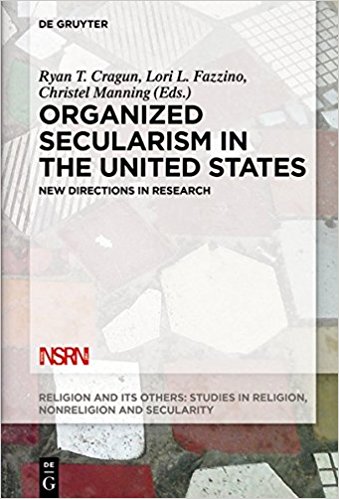
Description:
There has been a dramatic increase in the percentage of the US population that is not religious. However, there is, to date, very little research on the social movement that is organizing to serve the needs of and advocate for the nonreligious in the US.
This is a book about the rise and structure of organized secularism in the United States. By organized secularism we mean the efforts of nonreligious individuals to build institutions, networks, and ultimately a movement that serves their interests in a predominantly religious society. Researchers from various fields address questions such as: What secularist organizations exist? Who are the members of these organizations? What kinds of organizations do they create? What functions do these organizations provide for their members? How do the secularist organizations of today compare to those of the past? And what is their likely impact on the future of secularism?
For anyone trying to understand the rise of the nonreligious in the US, this book will provide valuable insights into organized efforts to normalize their worldview and advocate for their equal treatment in society.
Table of Contents:
| v-vi | Phil Zuckerman | Preface |
| 1-11 | Ryan Cragun & Christel Manning | Introduction |
| 13-29 | Charles Louis Richter | “I Know It When I See It:” Humanism, Secularism, and Religious Taxonomy |
| 31-56 | Michael Rectenwald | Mid-Nineteenth-Century Secularism as Modern Secularity |
| 57-85 | Lori L. Fazzino and Ryan T. Cragun | “Splitters!”: Lessons from Monty Python for Secular Organizations in the US |
| 87-112 | John R. Shook | Recognizing and Categorizing the Secular: Polysecularity and Agendas of Polysecularism |
| 113-134 | Amanda Schutz | Organizational Variation in the American Nonreligious Community |
| 135-149 | Aislinn Addington | Building Bridges in the Shadows of Steeples: Atheist Community and Identity Online |
| 151-170 | Jesse M. Smith | Communal Secularity: Congregational Work at the Sunday Assembly |
| 171-190 | Jacqui Frost | Rejecting Rejection Identities: Negotiating Positive Non-religiosity at the Sunday Assembly |
| 191-219 | Joseph Langston, Joseph Hammer, Ryan Cragun & Mary Ellen Sikes | Inside The Minds and Movement of America’s Nonbelievers: Organizational Functions, (Non)Participation, and Attitudes Toward Religion |
| 221-251 | Björn Mastiaux | A Typology of Organized Atheists and Secularists in Germany and the United States |
| 253-278 | Dusty Hoesly | Your Wedding, Your Way: Personalized, Nonreligious Weddings through the Universal Life Church |
| 279-300 | Nicholas J. MacMurray & Lori L. Fazzino | Doing Death Without Deity: Constructing Nonreligious Tools at the End of Life |
| 301-317 | Barry Kosmin | Old Questions and New Issues for Organized Secularism in the United States |
Citation:
Cragun, Ryan T., Christel J. Manning, and Lori L. Fazzino, eds. 2017. Organized Secularism in the United States: New Directions in Research. Berlin: Walter de Gruyter GmbH.
Where to Purchase:
The book is OpenAccess and available for digital download here.
You can also purchase the book at:
Or from the publisher, De Gruyter, directly.